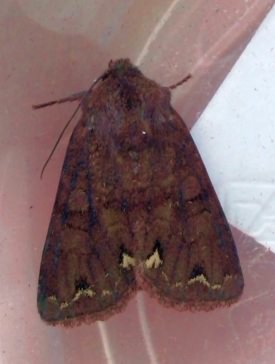
Photo ©2010 Wouter Bosgra
Click any photo for a larger image
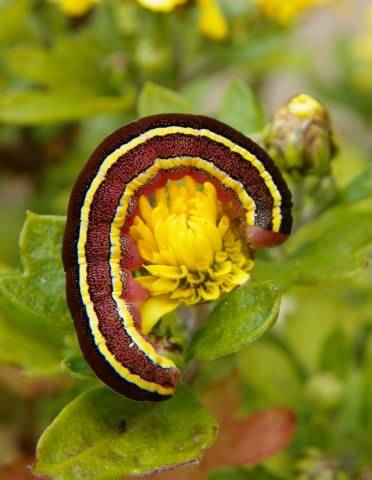
Photo is in the public domain Hos70
More photos
Photo ©2010 Wouter Bosgra
Click any photo for a larger image

Photo is in the public domain Hos70
 Broom moth - Melanchra pisi
Broom moth - Melanchra pisi
Family - Noctuidae
Also known as - Ceramica pisi
The Broom moth is a variable species between greyish brown to a dark chestnut with pale brown almost grey barring and markings, and a very feint white wavy sub–marginal line which has a white stigmata to the trailing corner of the forewing. The hindwings are much paler graduating to a brown outer hairy edge. Wingspan is 32–37mm (1.25–1.5in), the forewings are 16–20mm (0.6–0.8in) long.
It is found in the UK, Europe and further east to Russian Far East in a wide variety of open habitats, including heathland, bogs, rough grassland, open country, woodland margins and scrub. It flies in two generations from mid–May to August. Polyphagous larvae are seen from June to September have a distinctive pattern of purple brown or brownish green stripes alternated with 4 deep yellow longitudinal stripes.
They feed on various shrubs, deciduous trees and herbaceous plants, such as heather (Calluna ssp.), Broom, Gorse, Bracken – Pteridium aquilinum, Bramble, Sea–buckthorn - Hippophae ssp., Willow and European larch – Larix decidua.
 The Broom moth is listed in the UK Biodiversity Action Plan listed species for research purposes as it has undergone a marked decline in the last few years from many factors, including habitat change, pollution and the use of pesticides.
The Broom moth is listed in the UK Biodiversity Action Plan listed species for research purposes as it has undergone a marked decline in the last few years from many factors, including habitat change, pollution and the use of pesticides.
The Broom moth is part of the Noctuoidea superfamily which now comprises just over 11,000 species after reorganisation of the some 20,000 species that were originally in the group. Noctuidae are commonly known as Owlet moths, there are however only five Owlet moth species grouped in the Mesogona genus.
Agassiz #73.271, Bradley & Fletcher #2163
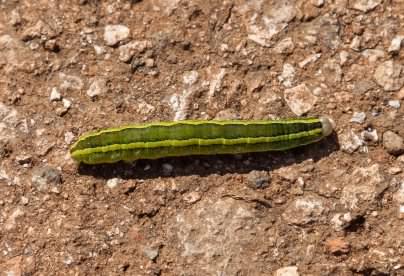 Photos ©2004 Diego Delso Larvae green variant |
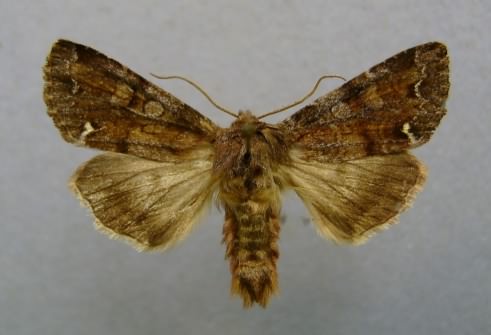 Photo ©2010 Dumi |
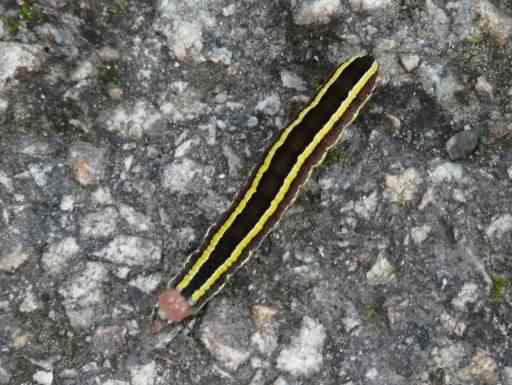 Photo ©2013 Simon J. Tonge |
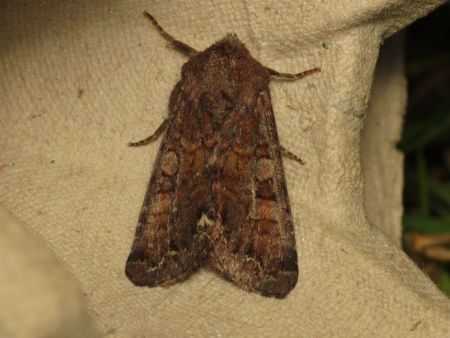 Photo ©2014 Donald Holbern |
Site design ©1999– Brickfields Country Park - Privacy -